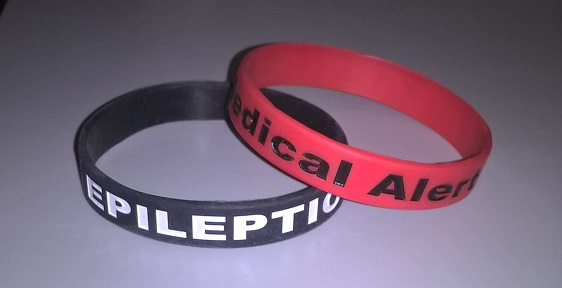Epilepsy
Epilepsy is a group of neurological disorders characterised by recurrent seizures, which are episodes of abnormal, excessive, and synchronised neuronal activity in the brain. Seizures can range from brief, nearly undetectable episodes to prolonged periods of vigorous shaking.
The occurrence of two or more unprovoked seizures defines epilepsy.

Signs and Symptoms
Epilepsy presents with various types of seizures, including convulsive and non-convulsive forms. The most common type is convulsive seizures, which involve involuntary muscle contractions.
These can be generalised, affecting both hemispheres of the brain and impairing consciousness, or focal, affecting one hemisphere. Non-convulsive seizures include absence seizures, characterised by brief lapses in awareness.

Types of Seizures
- Tonic-Clonic Seizures: Characterised by muscle contraction followed by rhythmic shaking.
- Tonic Seizures: Constant muscle contractions.
- Clonic Seizures: Rhythmic shaking of limbs.
- Myoclonic Seizures: Brief muscle spasms.
- Absence Seizures: Brief lapses in awareness.
- Atonic Seizures: Sudden loss of muscle tone.
Causes
Epilepsy can result from various factors, including genetic mutations, brain injuries, strokes, infections, and developmental abnormalities. In many cases, the exact cause is unknown.
Genetic factors play a significant role, with many epilepsies having a genetic component. Acquired causes include head trauma, brain tumours, and infections like meningitis.
Diagnosis
Diagnosis involves a thorough history and physical examination, supported by electroencephalogram (EEG) to detect abnormal brain activity and neuroimaging (CT or MRI) to identify structural abnormalities. Blood tests may be performed to rule out other causes of seizures, such as electrolyte imbalances or infections.

Treatment
Medications
Anticonvulsant medications are the mainstay of epilepsy treatment, helping to control seizures in about 69% of cases. Common medications include phenytoin, carbamazepine, valproate, and newer agents like levetiracetam and lamotrigine.
The choice of medication depends on the type of seizures, patient’s age, and other individual factors.
Surgery
For patients with drug-resistant epilepsy, surgical options may be considered. Procedures such as anterior temporal lobe resection or corpus callosotomy can help reduce or eliminate seizures.
Neurostimulation
Neurostimulation techniques, including vagus nerve stimulation (VNS) and responsive neurostimulation (RNS), are alternatives for patients who are not candidates for surgery.
Dietary Therapy
Ketogenic diets, high in fats and low in carbohydrates, have shown effectiveness in reducing seizures in some patients, particularly children.
Management and Prognosis
Epilepsy management includes regular follow-up, medication adherence, and lifestyle modifications to avoid seizure triggers. Prognosis varies; about 70% of people with epilepsy can achieve good seizure control with treatment.
However, epilepsy is associated with an increased risk of mortality, particularly due to sudden unexpected death in epilepsy (SUDEP), status epilepticus, and accidents.

Epilepsy is a common neurological disorder affecting millions worldwide, with a significant impact on quality of life. Effective management and treatment can help many individuals lead normal, productive lives.
Self-assessment MCQs (single best answer)
Which of the following is a hallmark diagnostic test for epilepsy?
Which type of seizure is characterised by a brief lapse in awareness?
What is the most common cause of epilepsy worldwide?
Which medication is NOT typically used as a first-line treatment for epilepsy?
Which of the following is a potential surgical treatment for epilepsy?
Which neurostimulation technique is used for treating epilepsy?
Which diet has shown effectiveness in reducing seizures in some patients with epilepsy?
What is the definition of epilepsy according to the International League Against Epilepsy (ILAE)?
Which of the following is NOT a typical trigger for epileptic seizures?
What term is used to describe a medical emergency where a seizure lasts longer than 5 minutes or there are more than two seizures in 5 minutes without a return to normal consciousness?
Dentaljuce
Dentaljuce provides Enhanced Continuing Professional Development (CPD) with GDC-approved Certificates for dental professionals worldwide.
Founded in 2009 by the award-winning Masters team from the School of Dentistry at the University of Birmingham, Dentaljuce has established itself as the leading platform for online CPD.
With over 100 high-quality online courses available for a single annual membership fee, Dentaljuce offers comprehensive e-learning designed for busy dental professionals.
The courses cover a complete range of topics, from clinical skills to patient communication, and are suitable for dentists, nurses, hygienists, therapists, students, and practice managers.
Dentaljuce features Dr. Aiden, a dentally trained AI-powered personal tutor available 24/7 to assist with queries and provide guidance through complex topics, enhancing the learning experience.
Check out our range of courses, or sign up now!


